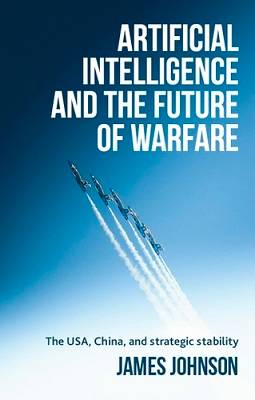Welcome to the September newsletter! I hope you had a good summer.
We’ve been busy over the last few months planning this autumn’s programme of events, as well as working behind the scenes on refreshing UK PONI to capture the expansion of the project and to engage better with our diverse audiences. I can’t wait to tell (and show) you more in the next few months!
We are very excited to announce that Dr Sara Kutchesfahani will join our Board of Advisors from October, where she will contribute to shaping the future direction of UK PONI. Given Sara’s significant experience in the nuclear field, her passion for diversifying the field and her openness to learning new processes and approaches, we look forward to our collaboration!
Sara will be our guest at the Nuclear Café on 15 October and we hope you can join us to welcome her to our community and learn more about her work.
Back in March when we started the Nuclear Café sessions with the objective of bringing the community together, we hoped that by now we’d be organising in-person meetings. However, following feedback from our network, we are happy to continue running the virtual Nuclear Café once a month until we have more opportunities to socialise in person.
Best wishes and hope to see you soon,
Dr Ana Alecsandru
Research Fellow, Proliferation and Nuclear Policy
UK PONI Project lead
RUSI Event
AIS data use and misuse: analysis and open-source intelligence
Briefing Event
30 September, 2-3pm BST
Since 2004, AIS systems have been compulsory for vessels over 300 tonnes for safety and vessel monitoring for commercial purposes. The large amounts of data generated create challenges in data analysis for vessel tracking, but also present sources of open-source intelligence. At the same time, AIS data can be misused in illicit activities in a variety of contexts, including vessel identification swapping for sanctions evasion.
This event is an excellent opportunity for early career academics/professionals to learn more about the topics of AIS data, data analysis and open-source intelligence.
The two talks will introduce work which is ongoing at Imperial College London and the Royal United Services Institute. There will be time for Q&As after the talks.
Nuclear Café
Nuclear Café: Fridays, 3-4pm BST
On 15 October, we will welcome Dr Sara Kutchesfahani to discuss her new role as member of the Board of Advisors for UK PONI, as well as her recent work on strategic foresight. She will also talk about her move from London to Washington D.C. and the challenges and opportunities of learning to navigate the nuclear field in the US.
Sara Z. Kutchesfahani is the Director of the N Square DC Hub. N Square is a funders’ collaborative created in 2014 to introduce innovation and creative thinking into the nuclear risk reduction space. Read Sara’s most recent analysis (with Marina Favaro) on the importance of strategic foresight here.
Recommended Reading
Artificial intelligence and the future of warfare by James Johnson
Artificial intelligence and the future of warfare: The USA, China, and strategic stability by James Johnson (University of Aberdeen) offers an innovative and counter-intuitive study of how and why artificial intelligence-infused weapon systems will affect the strategic stability between nuclear-armed states. Johnson demystifies the hype surrounding artificial intelligence in the context of nuclear weapons and, more broadly, future warfare. His book highlights the potential, multifaceted intersections of this and other disruptive technology – robotics and autonomy, cyber, drone swarming, big data analytics, and quantum communications – with nuclear stability.
Get the book
External Events
Community in Crisis: Impact of COVID-19 on Gender Equity and Inclusion in Nuclear Security (29 September, 5:30pm BST, register here)
Russia and the Security of Europe (29 September, 4pm BST, register here).
Eliminating the Existential Threat of Nuclear Weapons (30 September, 11am EDT, register here).
Engaging China: Reconsidering the strategy and practice (4 October, 1-2pm EDT, register here).
20th ESARDA Course, May 2022 (registration will open soon). The European Commission Joint Research Centre announces the 20th ESARDA COURSE on Nuclear Safeguards and Non-Proliferation. Attendance is limited to 200 participants and acceptance is based on ’first registered (and selected) first served’. This course is open to Masters’ degree students, in particular nuclear engineering students, but also to young professionals and international relations/law students. Online, 16-20 May 2022.
Publications
The AUKUS Deal: Self-Reflection Required (RUSI, 21 September)
Why the AUKUS Submarine Deal Is Bad for Nonproliferation – And What to Do About It (Carnegie Endowment for International Peace, 21 September)
Why Provide Nuclear Submarines to Australia, But Not South Korea or Japan? (The Diplomat, 22 September)
Training Day: North Korean Missile Tests Underscore a Diversifying Missile Arsenal (RUSI, 22 September)
Iran’s Recent, Irreversible Nuclear Advances (Institute for Science and International Security, 22 September)
Users Can’t Be Afterthoughts in the Pentagon’s AI Efforts (Defense One, 24 September)
Southeast Asia Nuclear-Weapon-Free Zone Treaty (Webinar, UNODA and James Martin Center for Nonproliferation Studies, 24 September)
Submarines and Shifting Allegiances (Podcast, NYT The Daily, 22 September)
Isn’t It Grand? While many people understand grand strategy to be an important expression of the way in which countries wield their power, there can often be confusion as to exactly what the term ‘grand strategy’ encompasses. (Podcast, Horns of a Dilemma, 24 September)
We Can’t Prevent Future Nuclear Wars Unless We Imagine Them Today (Common Dreams, 30 August)


